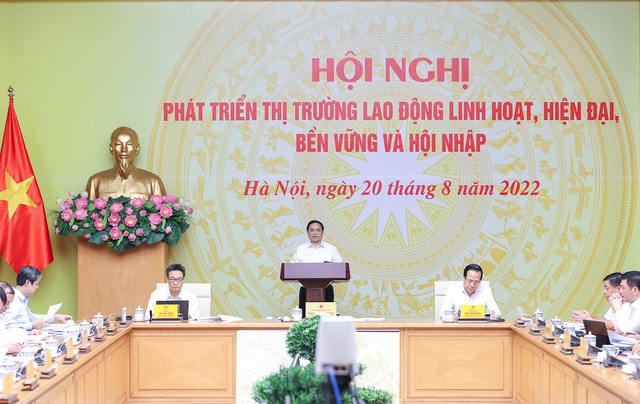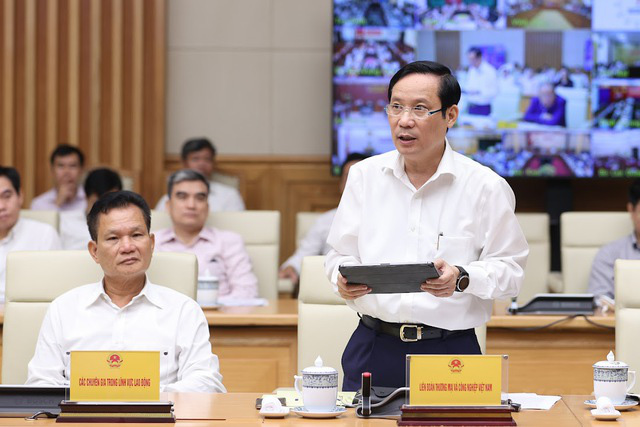The average monthly salary of Vietnamese workers is about US$300, much lower than that in the region and the world, delegates said during a conference on developing the labor market in Vietnam on Saturday.
At the conference chaired by Prime Minister Pham Minh Chinh in Hanoi on Saturday morning, delegates made a lot of suggestions for labor market development in the country.
Businesses found that it is easier to recruit unskilled laborers in Vietnam, while the recruitment of skilled workers such as accountants, technicians, and executives remains a challenge, said Pham Tan Cong, chairman of the Vietnam Chamber of Commerce and Industry (VCCI).
This affects the development of enterprises and risks losing foreign direct investment (FDI) inflows after the COVID-19 epidemic, Cong assessed.
|
|
| Pham Tan Cong, chairman of the Vietnam Chamber of Commerce and Industry (VCCI), speaks at the conference in Hanoi, August 20, 2022. Photo: Vietnam Government Portal |
The VCCI chairman suggested that certain policies be issued to assist businesses in retraining their workers following the serious impact of the pandemic.
A representative of ManpowerGroup Vietnam stated that skilled workers account for 11 percent, while those able to use English make up only five percent, which results in limited competitiveness of the Vietnamese workforce.
The average monthly salary of Vietnamese workers is about $300, much lower than that in the Southeast Asian region and the world, which is $1,992 and $2,114, respectively.
Vietnamese workers still face many limitations when businesses apply new technologies, the representative continued, adding that workers' level of adaptability and responsiveness is still low.
Vietnam ranks 116th out of 141 countries in terms of trained human resources, a representative of the World Bank stated, adding that Singapore ranks 19th.
|
|
| A World Bank representative attends the conference in Hanoi, August 20, 2022. Photo: Vietnam Government Portal |
The proportion of workers with training certificates in the country is also much lower than other middle-income nations, while the demand for skilled workers has been increasing rapidly.
The World Bank representative recommended a stronger link between schools and enterprises in vocational training as a solution to this problem.
The current labor supply does not meet the demand of businesses, said general director of Sun Group Dang Minh Truong.
About 90 percent of businesses struggle to find suitable employees, Truong continued, mentioning other issues such as increasing labor costs and low adaptability of workers.
PM Chinh stressed the need to work out a strategy for sustainable development of the labor market to take advantage of the country’s golden population structure.
He also asked for comprehensive innovation and reform to increase the quality of vocational training, and step up mobilization of financial resources for human resource development.
Like us on Facebook or follow us on Twitter to get the latest news about Vietnam!




















































